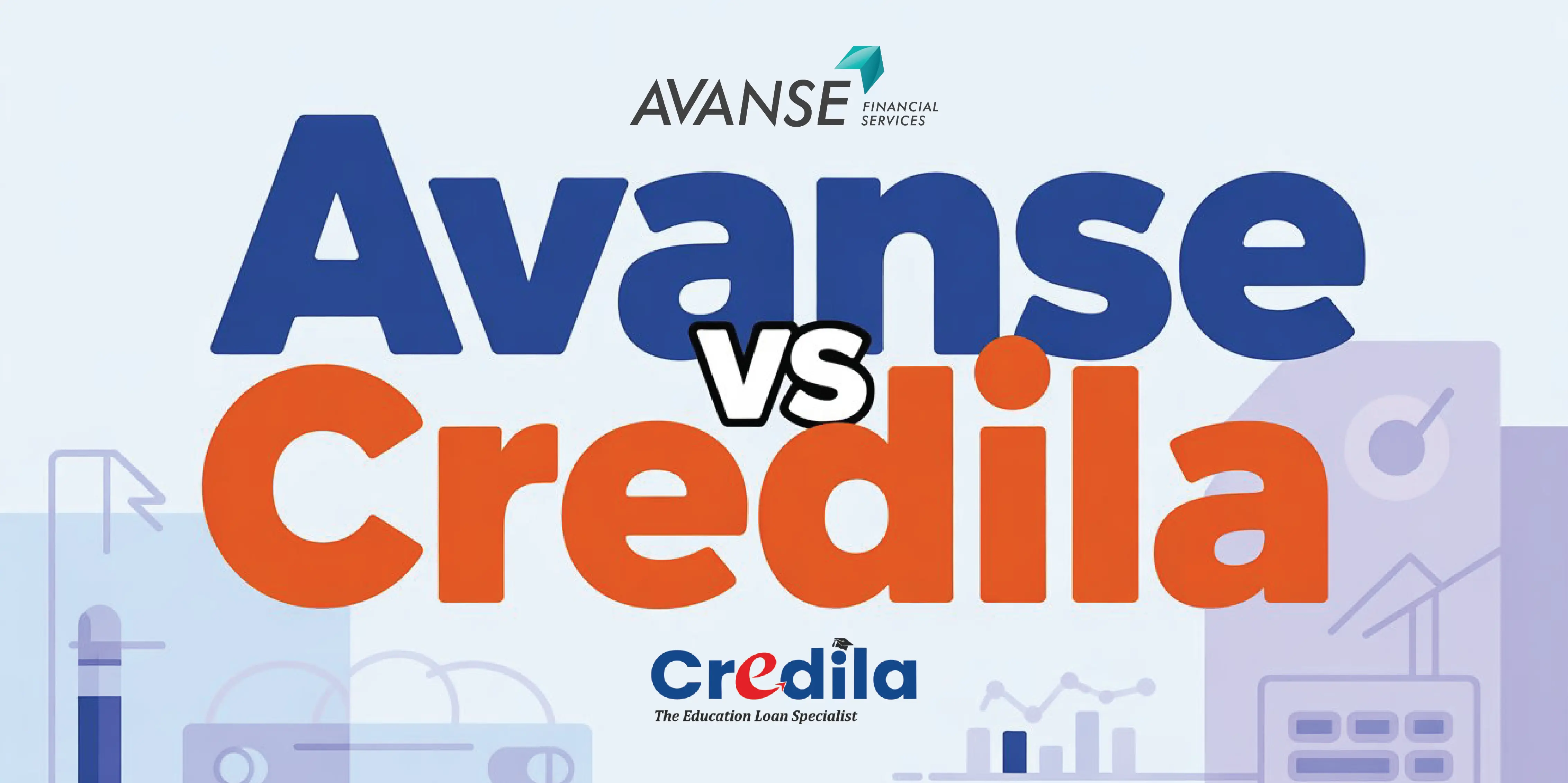https://www.wemakescholars.com/blog/co-applicant-rules-in-non-collateral-education-loans
Who Can Be a Co-Applicant for a Non-Collateral Education Loan?
Abroad Education Loan | Updated on ()

If you're planning to study in India or abroad and want to take an education loan without collateral, you're probably hearing this term a lot. “You’ll need a co-applicant.”But what exactly does that mean?
Who can be one?
And what if your parents don’t meet the bank’s requirements?
Let’s unpack everything in a way that’s easy to understand.
Who is a Co-Applicant in an Education Loan?
A co-applicant is a person who is liable to pay the student’s loan if the student is unable to pay under any circumstances. Basically, a co-applicant is your parents, legal guardian, spouse(if married), parents-in-law or siblings.
Since most of the students may or may not secure a job while studying, lenders require a financial co-applicant to ensure repayment.
They're basically your financial backup until you finish your studies and start earning.
Who can be your Co-Applicant in an Education Loan?
While applying for an education loan, lenders will ask for a financially responsible person who can make sure that they repay the loan amount if the student fails to.
Choosing the right co-applicant is important as their financial background and credit score will impact the loan approval, loan amount and interest rate in an education loan.
Here are the people who can take part in this role:
-
Parents (Father or Mother): The most common and preferred co-applicants for an education loan.
-
Guardian (If parents are not there): In case the parents are not available, then lenders consider the guardian as a co-applicant.
-
Working siblings: If the brother or sister is financially stable, they can act as a co-applicant.This option is more helpful when the parents are retired or not financially stable.
-
Spouse: For married students, their spouse can also be considered a co-applicant.
Why is a Co-Applicant necessary for a Non-Collateral Loan?
Lenders require a co-applicant to take on a portion of the repayment obligation because you are not providing any collateral or security for the loan. The co-applicant's consistent income and good credit history give the lender further assurance that the loan will be repaid on time. This will help improve your chances of loan approval while minimising the lender's risk.
How Does Having a Co-Applicant Influence Your Loan Approval?
Having a co-applicant with a good financial background increases the lender's confidence, which makes it easier to get the loan approved. A strong co-applicant can get you a higher loan amount and the best interest rates.
If the co-applicant has a poor financial background or a poor credit score, it can lead to rejection or may be approved with stricter conditions.
How much should your Co-Applicant Earn?
For the Co-Applicant eligibility, lenders have different criteria. Generally, lenders evaluate factors like income and credit score. The ideal income requirement of a co-applicant differs depending on the type of lender. Here is an overview of the ideal income requirement of the co-applicant:
|
Lenders |
Ideal Income Requirement of a Co-Applicant(Monthly) |
|
State Bank Of India |
No income is required if the student is going to a top 100 university |
|
Bank Of Baroda |
35,000 |
|
Union Bank |
No specific income criteria. But the co-applicant should have a stable income. |
|
ICICI Bank |
|
|
Axis Bank |
35,000 |
|
IDFC Bank |
35,000 |
|
NBFC’s |
30,000 |
*The above income requirement excludes all your existing liabilities, like pending loan amounts (personal, home, business).
If you have these obligations, i.e the current ongoing EMIs are higher compared to the income, then how can the co-applicant repay the new education loan that they take now? Let's take an example and understand this.
Let's say your father's income is 50k and he has a family of 4. But your father already has an EMI of 35k towards a vehicle loan and all other expenses related to the family. So if he is requesting a new loan again, then how can he pay EMI for this new loan? So the bank will reject, saying FOIR norms not met.
*FOIR - Fixed Obligation To Income Ratio
Credit Score Requirements for Co-Applicants
Lenders vary in their criteria, but typically, the expectations are as follows:
|
Lender Type |
Credit Score Requirements for Co-Applicant |
Loan Approval Chances |
|
Public Banks |
685-700 |
High Approval |
|
Private Banks |
700 and above |
High Approval |
|
NBFC’s |
700 and above |
High Approval |
A good credit score is important, generally above 650 is important, as it shows the co-applicant is punctual in repaying the loans.
What Happens If Your Co-Applicant Has a Low Credit Score?
A low credit score on the co-applicant’s report indicates increased risk for lenders, which may result in potential loan denial, lower loan amounts, or elevated interest rates.
To address this, you could think about:
-
Including a second co-applicant with a stronger credit history.
-
Targeting NBFCs with looser credit criteria.
-
Assisting the co-applicant in enhancing their credit score before applying.
Benefits of Having a Strong Co-Applicant in an Education Loan
-
High Loan Amount
-
Lower Interest Rates
-
Preferred Choice of University and Country
Mistakes to Avoid When Choosing a Co-Applicant
Selecting the right co-applicant is important in an education loan. Avoid these common mistakes:
-
Selecting someone with a low credit score.
-
Selecting someone whose income is irregular or poor.
-
Selecting someone who already has too many existing loans.
Tips to Strengthen Your Loan Application with the Right Co-Applicant
-
Select a co-applicant who has a good income and a strong credit score.
-
Ensure they don't have too many loans.
-
Gather and verify all required documents beforehand.
-
If one person does not meet the requirements of the lender's conditions, try adding a second co-applicant to your education loan.
These steps make your application stronger and the approval process smoother.
Common Documents Required from a Co-Applicant
To determine the financial stability of the co-applicant and check how they are going to repay the loan, lenders usually require specific documents based on the co-applicant's employment status. Below are the documents that are required to submit for an education loan.
If the Co-Applicant is Salaried:
-
Basic KYC documents, such as Aadhar Card, PAN Card, for identity verification purposes.
-
The latest 3 months' salary slips from your company to evaluate your income stability.
-
The latest 6 months of bank statements are used to determine the deposits.
-
The latest 2 years of ITR or Form 16.
If the Co-Applicant is Self-Employed:
-
Basic KYC documents, such as Aadhar Card, PAN Card, for identity verification purposes.
-
The latest 1-year bank statements are used to determine the deposits.
-
The latest 2-3 years of ITR.
-
The latest 2-3 years of Profit/Loss account and Balance sheet to determine revenue, profit or loss.
-
Business proof and photographs of the business.
These help the lender assess the co-applicant’s financial stability.
Conclusion
A financial co-applicant plays a major role in acquiring a non-collateral education loan. Choosing the right co-applicant can ensure the student has a smooth loan process. The Co-applicants' financial background and their credit history crucially impact the loan approval, the loan amount that they take and the rate of interest.
By knowing the eligibility criteria, income and credit score requirements, you can have a clear idea. Choosing a co-applicant who does not have income stability or a low credit score can impact your chances of education loan approval.
Lastly, with the right co-applicant and proper documentation, you can get your loan approval and study in your dream university.





Kindly login to comment and ask your questions about Scholarships & Education Loans